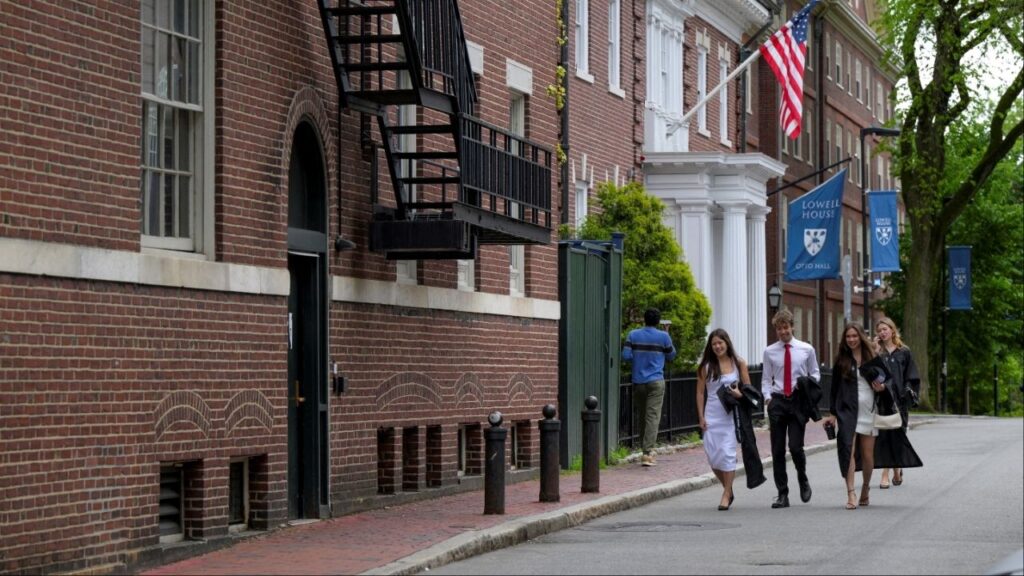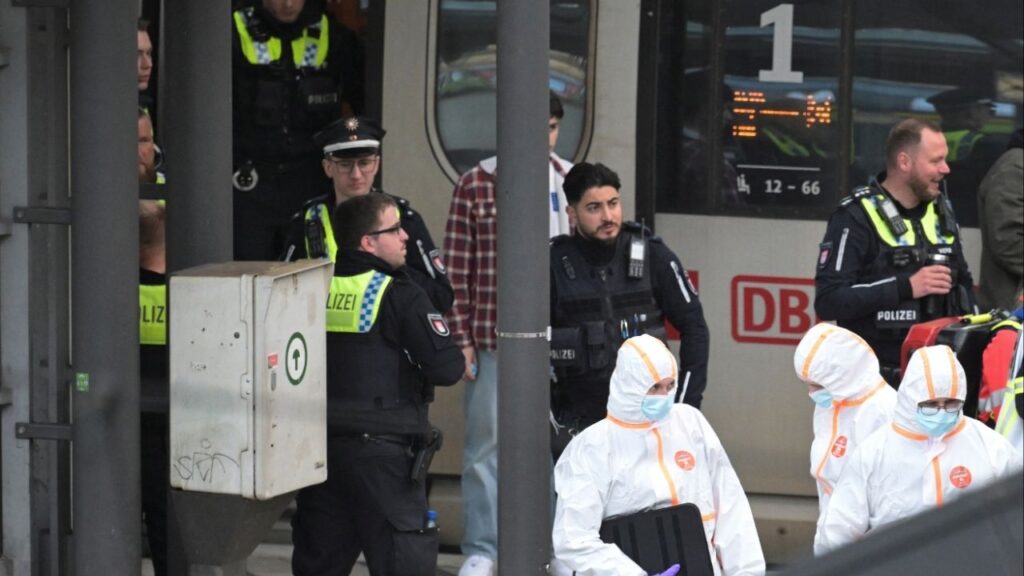
- Supreme Court blocks fast-track deportations of Venezuelans under 1798 law, pausing Trump administration's use of Alien Enemies Act.
- Justices say deportation targets deserve more than 24 hours to challenge removal; case returns to appeals court for review.
- Trump slams court for halting deportations; dissenters Alito and Thomas call decision extraordinary, Kavanaugh urges faster final resolution.
Share
|
Getting your Trinity Audio player ready...
|
WASHINGTON (AP) — The Supreme Court on Friday barred the Trump administration from quickly resuming deportations of Venezuelans under an 18th-century wartime law enacted when the nation was just a few years old.
Over two dissenting votes, the justices acted on an emergency appeal from lawyers for Venezuelan men who have been accused of being gang members, a designation that the administration says makes them eligible for rapid removal from the United States under the Alien Enemies Act of 1798.
The court indefinitely extended the prohibition on deportations from a north Texas detention facility under the alien enemies law. The case will now go back to the 5th U.S. Circuit Court of Appeals, which declined to intervene in April.
President Donald Trump quickly voiced his displeasure. “THE SUPREME COURT WON’T ALLOW US TO GET CRIMINALS OUT OF OUR COUNTRY!” he posted on his Truth Social platform.
The high court action is the latest in a string of judicial setbacks for the Trump administration’s effort to speed deportations of people in the country illegally. The president and his supporters have complained about having to provide due process for people they contend didn’t follow U.S. immigration laws.
The court had already called a temporary halt to the deportations, in a middle-of-the-night order issued last month. Officials seemed “poised to carry out removals imminently,” the court noted Friday.
Several Cases Related to the Old Deportation Law Are in Courts
The case is among several making their way through the courts over Trump’s proclamation in March calling the Tren de Aragua gang a foreign terrorist organization and invoking the 1798 law to deport people.
The high court case centers on the opportunity people must have to contest their removal from the United States — without determining whether Trump’s invocation of the law was appropriate.
“We recognize the significance of the Government’s national security interests as well as the necessity that such interests be pursued in a manner consistent with the Constitution,” the justices said in an unsigned opinion.
At least three federal judges have said Trump was improperly using the AEA to speed deportations of people the administration says are Venezuelan gang members. On Tuesday, a judge in Pennsylvania signed off on the use of the law.
The Legal Process for This Issue Is a Patchwork One
The court-by-court approach to deportations under the AEA flows from another Supreme Court order that took a case away from a judge in Washington, D.C., and ruled detainees seeking to challenge their deportations must do so where they are held.
In April, the justices said that people must be given “reasonable time” to file a challenge. On Friday, the court said 24 hours is not enough time but has not otherwise spelled out how long it meant. The administration has said 12 hours would be sufficient. U.S. District Judge Stephanie Haines ordered immigration officials to give people 21 days in her opinion, in which she otherwise said deportations could legally take place under the AEA.
The Supreme Court on Friday also made clear that it was not blocking other ways the government may deport people.
Justices Samuel Alito and Clarence Thomas dissented, with Alito complaining that his colleagues had departed from their usual practices and seemingly decided issues without an appeals court weighing in. “But if it has done so, today’s order is doubly extraordinary,” Alito wrote.
In a separate opinion, Justice Brett Kavanaugh said he agreed with the majority but would have preferred the nation’s highest court to jump in now definitively, rather than return the case to an appeals court. “The circumstances,” Kavanaugh wrote, “call for a prompt and final resolution.”
RELATED TOPICS:
Germany Threatens Steps Against Israel as Tone Shifts Over Gaza
3 days ago
US Supreme Court Rejects Case About Student’s ‘There Are Only Two Genders’ T-Shirt
3 days ago
US Consumer Confidence Improves in May, Tariffs Anxiety Lingers
3 days ago
Fresno’s Crime Beat Didn’t Prepare Me for What I Saw on a Ride Along
3 days ago
NPR Sues Trump Administration Over Executive Order to Cut Funding
3 days ago
Tulare County Authorities Search for Man Missing in Tule River
4 days ago
Far-Right Israelis Confront Palestinians, Other Israelis in Chaotic Jerusalem March
4 days ago
Man Shot While Driving in Visalia, Police Investigating
4 days ago
Visalia Man Found Hiding in Closet After Fleeing Crash Scene
4 days ago
FBI Announces New Probes Into Dobbs Supreme Court Leak, White House Cocaine Incident
3 days ago
Categories

FBI Announces New Probes Into Dobbs Supreme Court Leak, White House Cocaine Incident

Ecstasy and Bribery Accusations in Sean ‘Diddy’ Combs Trial Bolster Racketeering Charge

Germany Threatens Steps Against Israel as Tone Shifts Over Gaza

US Supreme Court Rejects Case About Student’s ‘There Are Only Two Genders’ T-Shirt

US Consumer Confidence Improves in May, Tariffs Anxiety Lingers

Fresno’s Crime Beat Didn’t Prepare Me for What I Saw on a Ride Along












